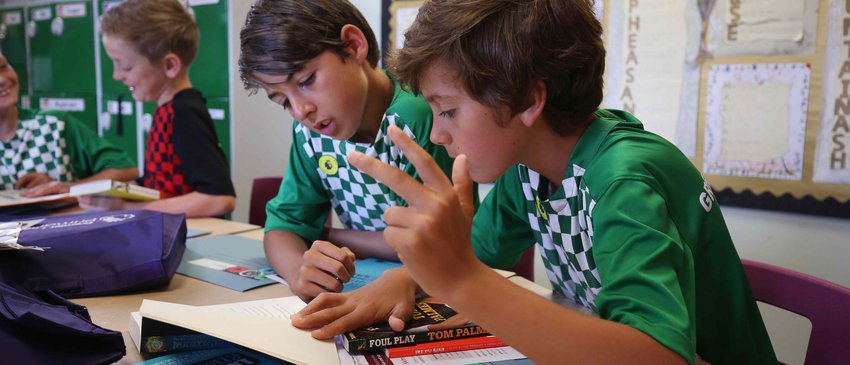Sport and literacy

We use the excitement and passion surrounding sport to motivate and inspire young people to improve their literacy skills.
Programmes
Sport and Literacy programmes
-
Empowering young people to improve their financial wellbeing while developing literacy skills.Learn more
-
Use the appeal of the Premier League and professional football clubs to inspire children to learn, be active and develop important life skills.Learn more
-
Inspiring young girls to get active and learn about football through the magic of storytelling.Learn more
Inclusion and Alternative Provision
We also provide bespoke support designed to engage students in alternative provision or at risk of exclusion with literacy.
Resources
We have lots of classroom resources based around sport.
-
Fantastic free teaching resources to accompany the latest Marcus Rashford Book Club title, The Ghoul in the School by Marcus Rashford and Alex Falase-Koya. For ages 8-11.Learn more about Marcus Rashford Book Club.
-
Watch back all the live Premier League Primary Stars and National Literacy Trust online author events and footy-booky quizzes from across the year.Learn more about Premier League literacy events, quizzes and resources.
-
These resources support teachers to develop new approaches to embedding literacy into GCSE PE and sport science lessons.Learn more about Literacy in PE.
Success stories
We have over 15 years’ experience using sport to improve children and young people’s literacy.
-
Girlington Primary School in Bradford ran Premier League Reading Stars during the summer term with significant impact on pupils' reading ability and attitudes.Learn more about Football boosts pupils' reading and writing skills at Girlington Primary School.
-
The PLRS programme has had a huge impact on pupils’ reading attainment, with 80% of pupils making more than expected progress after taking part last year.Learn more about Premier League Reading Stars helps pupils make five years’ progress.
Coming soon
We’re working on bringing you more programmes and resources focused on other sports soon. Sign up to our newsletter to be kept updated.








